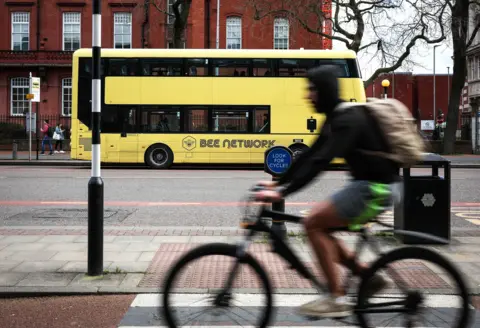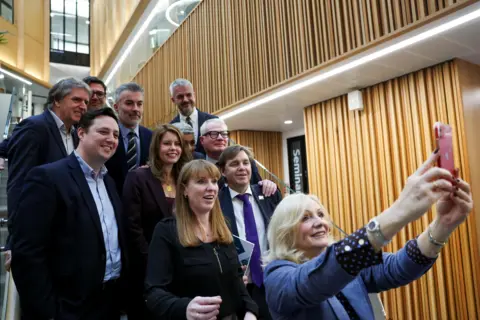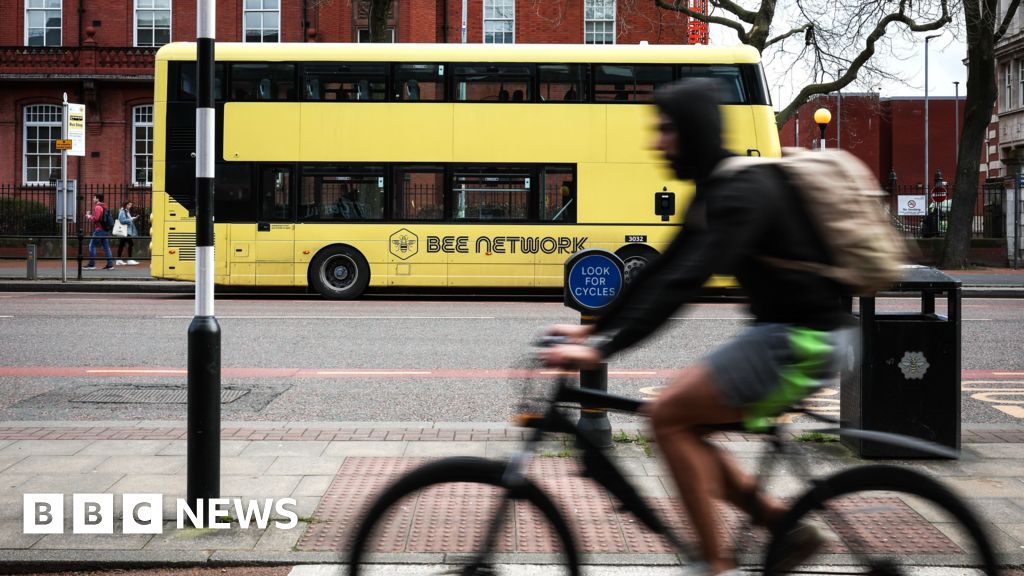Bu içerikte, İngiltere’deki yerel yönetimlerin 50 yıldan fazla bir süredir en büyük yeniden yapılanmasının planlandığı duyuruldu. Yardımcı Başbakan Angela Rayner, herkesin doğrudan seçilen bir belediye başkanına sahip olmasını ve ilçe konseylerini daha geniş otoritelerin bir parçası haline getirmeyi istiyor. Önerileri bölgesel belediye başkanları, yerel yönetim ve iş liderlerinden oluşan bir kitleye “nihayet İngiltere’nin çeşitli topluluklarının, insanların ve yerlerin kendileri için önemli olan şeyler üzerinde kontrolü geri almaya başladıkları bir dönüm noktası” olarak övdü. Yerel alanlar, Büyük Manchester’ın arı ağı ağı’nın bir parçası olarak yaptığı gibi otobüsleri kendi kontrolü altına alabilecekler. Ayrıca, bu planların yerel alanınıza nasıl bir fark yaratabileceğine dair detaylar da içeriyor.
[ad 1]
Kaynak: www.bbc.com

 EPA-EFE/REX/Shutterstock
EPA-EFE/REX/ShutterstockThe deputy prime minister has announced plans for the biggest reorganisation of local government in England in over 50 years.
Angela Rayner wants to give everyone a directly elected mayor, and incorporate district councils into wider authorities.
She hailed the proposals as a “turning point when we finally see communities, people and places across England begin to take back control over the things that matter to them”, to an audience of regional mayors, local government and business leaders.
But what difference could it make to your local area?
Bins, libraries, parks – all delivered by one council
Local government across England is often referred to as a patchwork.
Some places have both district and county councils that each provide some services; some places have one council that does everything, and some places have a mayor who oversees that.
Rayner’s plan is to make the system similar across England. So bins and libraries, planning and leisure centres will all fall under one, single council.
The government says merging councils could save £2bn. That comes amid a bleak picture of council finances across the country.
Neighbouring areas would then be grouped together under what’s called a strategic authority with a directly elected metro mayor. Recent examples of this include Nottinghamshire and Derbyshire, who now fall under the East Midlands Combined County Authority, and elected their first mayor, Labour’s Claire Ward, in May.
Half of the population of England currently have an elected mayor, with research suggesting they’re well known locally.
Polling from the non-partisan think tank the Centre for Cities suggests that mayors are the most recognisable local political figures in their area, with three-quarters of people knowing who they are – way ahead of MPs or council leaders.
Powers over local economies – and more money from Whitehall
Mayors will have to come up with local growth plans for their areas to help kickstart the economy.
They’ll have to work with major employers, universities, colleges and industry bodies in their areas, identifying sectors for growth in the region.
Local leaders will then need to put in place the conditions for growth, like college courses and Jobcentre support that match local skills gaps. The hope is all of this will create jobs, with the government saying that local leaders have a better understanding of the strengths and ambitions of an area than Whitehall.
“We must rewire England and end the hoarding in Whitehall by devolving power and money from central government to those with skin in the game,” Rayner said.
Mayoral devolution deals also usually come with a 30-year investment fund of hundreds of millions of pounds. Some mayors also have powers to charge their own precept on council tax – although not all those that do have that power actually charge one.
Areas that can demonstrate sound financial management will get so-called integrated settlements. That means they get one pot of money from Whitehall and can choose to allocate it how they see fit, rather than specific budgets for specific things.

 Reuters
ReutersLondon-style transport networks across the country
Local mayors are to be given powers over their area’s transport under the plans.
It could mean London-style networks, where buses and light commuter trains are all run as part of the same system.
Some areas which already have mayors are doing this already. Greater Manchester has taken all bus services back under control as part of the Bee Network alongside its Meterolink tram, with plans to add commuter trains to the system by 2028.
And in West Yorkshire Mayor Tracy Brabin is bringing buses back under her control, with plans to build a mass tram system as well.
Research by the Centre for Cities suggests that transport has the most cut-through of all policies mayors had put in place.
Mayors would also have more powers over e-bike schemes under the plans, with the ability to fine users and companies whose cycles were left in a hazardous way.
More roads, junctions and reservoirs?
Mayors would be given responsibilities for strategic planning. That means they’d have to come up with plans for building housing and infrastructure.
Housing is one of the government’s top priorities, with a pledge to build 1.5m more houses in England before the next election.
Local authorities wouldn’t get a say in how many houses they have to build, after areas were given targets. But they would get a say in how to manage housing growth in their region, helping identify areas for building and making decisions on affordable housing.
They’d also be able to charge developers a levy to help pay for the infrastructure needed to support the increase in homes, such as roads, major junctions and reservoirs. They’d also have a say in freight and logistics.
And mayors would be able to intervene in planning applications they see to be strategically important to an area – similar to the government saying they’ll intervene in applications that are strategically important to the whole country, like prisons.
A right to buy pubs, historic buildings and sports facilities
Local communities currently have a right to bid for local community assets that are at risk of being lost.
This includes things like sports facilities, historic buildings, pubs, libraries and cafes, as well as local news outlets and youth clubs.
The government says it wants to replace this right to bid with a right to buy, with funding available to purchase community assets.
Local communities and businesses will also be given powers to rent shops that have been vacant for a long time, helping to revitalise high streets.







Yorumlar kapalı.